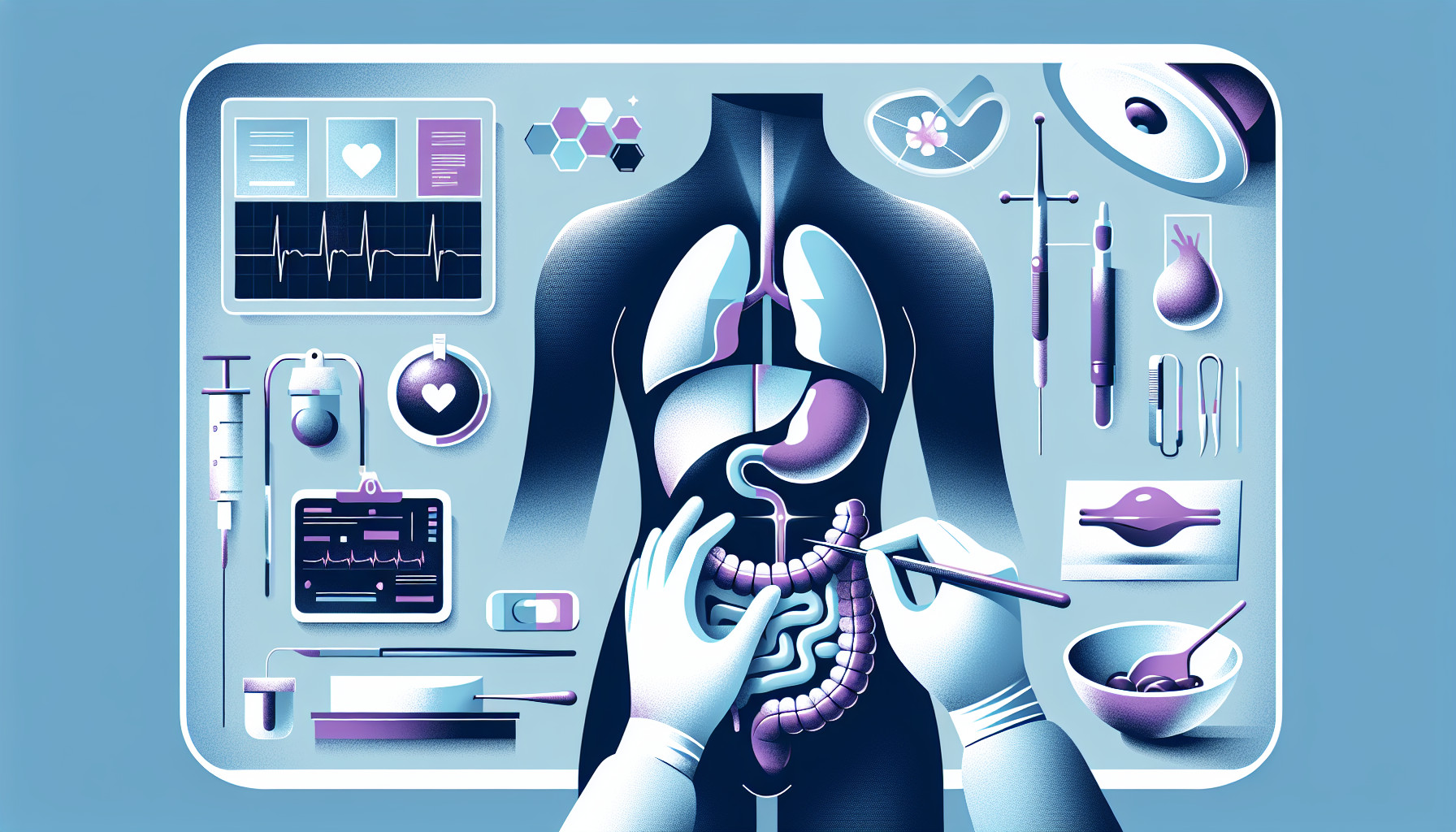Our Summary
This research paper is about the complications that can occur after a pancreaticoduodenectomy, which is a major surgical procedure often performed to treat cancer in the pancreas. The most common issues include delayed emptying of the stomach, leaks from the pancreas, internal bleeding, leaks of a certain fluid called chyle, and decrease in pancreatic functions, as well as infections at the surgical site. Recognizing these potential complications is crucial to providing good care for these patients. After the surgery, a team that includes experienced nurses, gastroenterologists (doctors who specialize in digestive systems), and interventional radiologists (doctors who use imaging to guide minimally invasive procedures) is essential in taking care of these patients.
FAQs
- What are the most common complications after a pancreaticoduodenectomy or Whipple procedure?
- Why is a team approach important in taking care of patients after a Whipple procedure?
- What roles do nursing staff, gastroenterology, and interventional radiology play in postoperative care for Whipple procedure patients?
Doctor’s Tip
One helpful tip a doctor might tell a patient about the Whipple procedure is to closely follow post-operative care instructions to reduce the risk of complications such as delayed gastric emptying, pancreatic fistulae, hemorrhage, chyle leaks, and infections. It is important to communicate any symptoms or concerns to your healthcare team promptly for early detection and treatment. Additionally, maintaining a healthy diet and lifestyle can aid in the recovery process.
Suitable For
Patients who are typically recommended for a Whipple procedure, also known as a pancreaticoduodenectomy, are those with pancreatic cancer, bile duct cancer, ampullary cancer, or other tumors in the pancreas, duodenum, or bile ducts. These patients may have tumors that are localized or have spread to nearby lymph nodes, but are still considered resectable. Additionally, patients with benign conditions such as chronic pancreatitis or pancreatic cysts may also undergo a Whipple procedure if they are experiencing severe symptoms that cannot be managed with other treatments.
It is important for patients undergoing a Whipple procedure to be in overall good health, with a sufficient reserve to withstand the potential complications and challenges of the surgery and recovery process. Patients should also have a strong support system in place to help them through the postoperative period, as recovery can be lengthy and challenging.
Ultimately, the decision to recommend a Whipple procedure for a patient is made on a case-by-case basis by a multidisciplinary team of healthcare professionals, including surgeons, oncologists, gastroenterologists, and radiologists. These experts will consider the patient’s specific diagnosis, overall health, and treatment goals before making a recommendation for surgery.
Timeline
Before Whipple procedure:
- Patient undergoes pre-operative testing and evaluations to determine if they are a suitable candidate for the surgery.
- Patient meets with their surgeon to discuss the procedure, potential risks and benefits, and what to expect during the recovery process.
- Patient may need to make lifestyle changes, such as quitting smoking or adjusting their diet, in preparation for the surgery.
After Whipple procedure:
- Patient is closely monitored in the hospital for several days to ensure they are recovering well and there are no immediate complications.
- Patient may experience pain, fatigue, and difficulty eating in the days and weeks following the surgery.
- Patient will need to follow a strict diet plan and take medication to manage pain and prevent infections.
- Patient may need to undergo physical therapy to regain strength and mobility.
- Follow-up appointments with the surgeon and other healthcare providers will be scheduled to monitor the patient’s progress and address any issues that may arise.
What to Ask Your Doctor
- What are the potential complications of a Whipple procedure that I should be aware of?
- How likely am I to experience these complications?
- What steps can be taken to reduce the risk of complications during and after the procedure?
- How will my recovery be affected if I experience any of these complications?
- What signs and symptoms should I watch for that may indicate a complication?
- How will these complications be diagnosed and treated if they occur?
- How long can I expect to be in the hospital after the procedure?
- What kind of follow-up care will I need after the procedure?
- Are there any lifestyle changes or dietary restrictions I should be aware of after the procedure?
- Are there any long-term effects or complications that I should be aware of?
Reference
Authors: Simon R. Journal: Surg Clin North Am. 2021 Oct;101(5):865-874. doi: 10.1016/j.suc.2021.06.011. Epub 2021 Jul 29. PMID: 34537148
